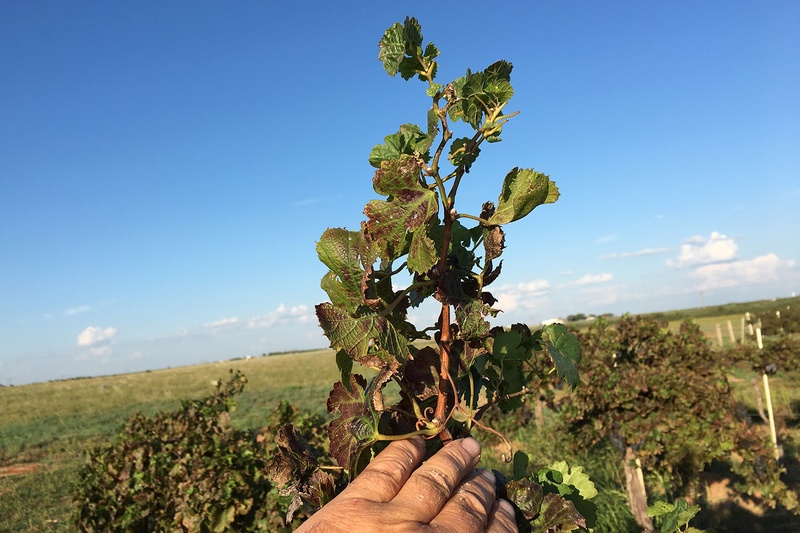As Paul Bonarrigo watched his grapevines dwindle, he was confident that heavy-duty herbicides, probably sprayed on crops by a nearby farmer, were drifting into his vineyards. For the past two years, his 44 acres in Hale County – once sprawling vineyards providing fruit for Bonarrigo’s Messina Hof Winery – have not produced any grapes as they wither from chemical damage.
Other Texas winegrowers have seen similar damage, and they blame it on dicamba and 2,4-D, two high-volatility herbicides commonly used on cereal crops, pastures, and lawns. Now, the state’s vintners are alarmed that use of the chemicals may soon expand to include 3.7 million acres of cotton fields in the High Plains, where cotton is being invaded by weeds immune to the Roundup pesticide long used.
The wine industry contributed close to $2 billion to the Texas economy in 2013, according to a report by the Texas Wine and Grape Growers Association. Bonarrigo said he thinks the industry is now in jeopardy… Read more from the Rivard Report

